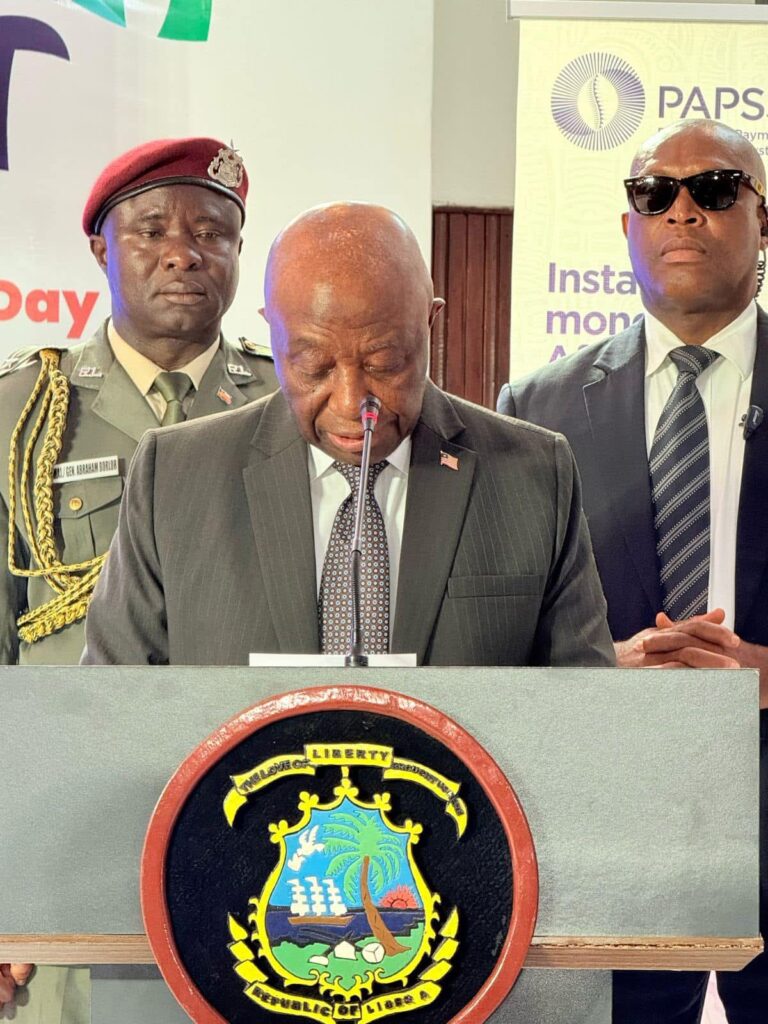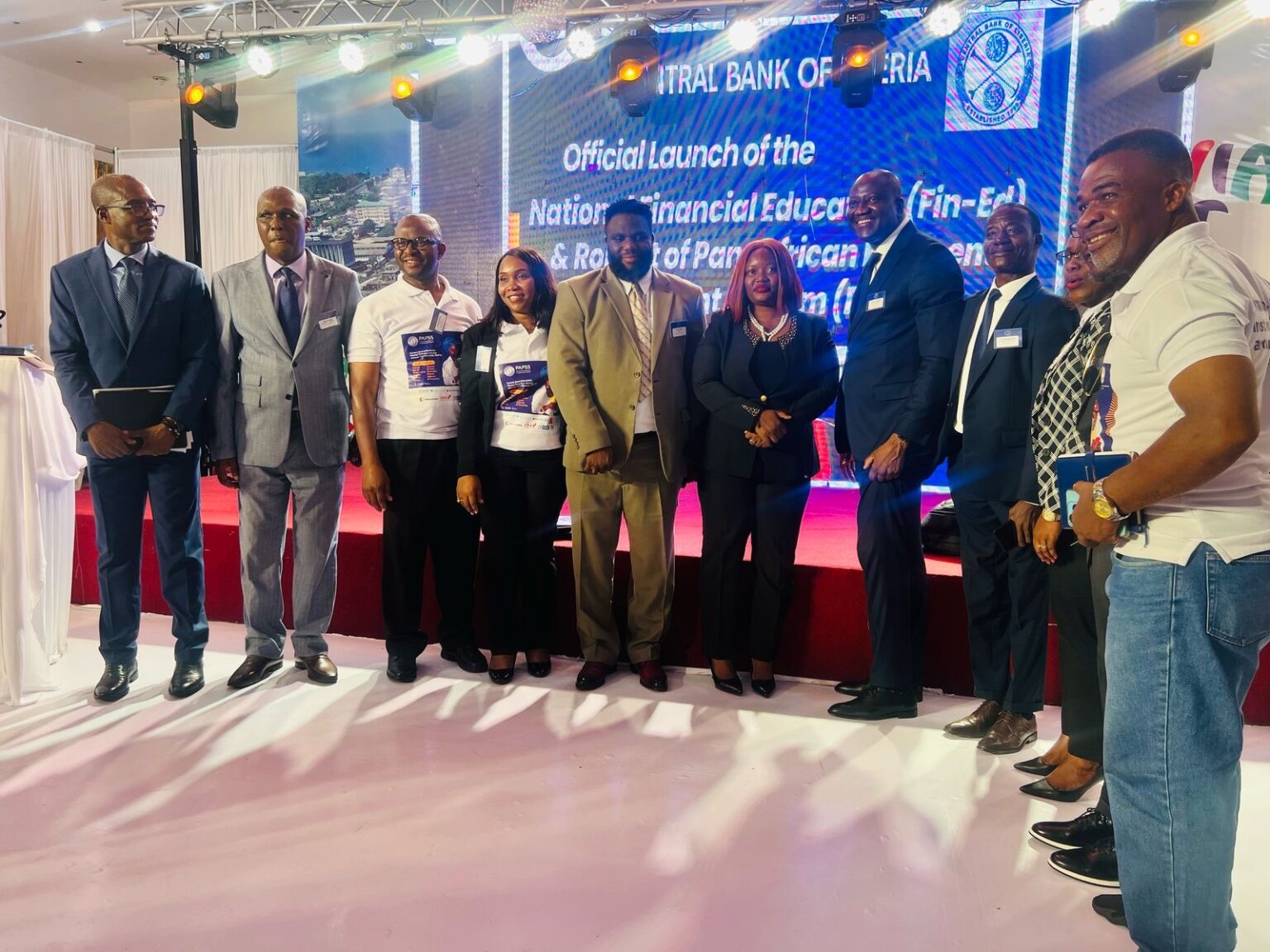
Monrovia, March 27, 2025 – President Joseph Nyuma Boakai, Sr. today officially launched the Central Bank of Liberia’s (CBL) Financial Education and Literacy Program and the Pan-African Payment & Settlement System (PAPSS) at Monrovia City Hall.
The initiatives, spearheaded by the CBL, are key components of the Government’s ARREST Agenda for Inclusive Development (AAID), aimed at promoting financial inclusion and strengthening Liberia’s economic position.
In his launching address, President Boakai commended the CBL Board of Governors and Management for their commitment to policies that foster financial empowerment. He stressed that financial education is a critical driver of economic growth, particularly for low-income communities and women.
“The ARREST Agenda is about the people and for the people,” President Boakai stated. “Financial education will empower individuals, particularly women and low-income communities, with the knowledge to effectively manage their finances, start businesses, and contribute to Liberia’s economic development.”
Referencing the 2022 World Bank Findex Report, he noted that Liberia’s financial inclusion rate improved from 36% in 2017 to 52%, though a 15.4% gender gap remains, with women lagging behind. He emphasized that targeted financial education programs can help bridge this gap and ensure broader financial participation.
President Boakai also highlighted the transformative potential of PAPSS, which will enable instant cross-border transactions in local currencies, reducing foreign exchange constraints and supporting Liberia’s de-dollarization efforts.
“With PAPSS, Liberian businesses will no longer need to first convert our currency into US dollars to trade across Africa. This will help preserve our foreign exchange reserves, strengthen our national currency, and foster economic resilience,” the President assured.
He urged financial institutions, businesses, and citizens to embrace the new Financial Education Program and PAPSSas tools for economic empowerment, increased financial inclusion, and national development.
Speaking earlier, Finance and Development Planning Minister Augustine Kpehe Ngaufuahemphasized that inefficiencies and delays in financial transactions act as hidden forms of taxation, hindering business growth. He noted that PAPSS aligns with the African Continental Free Trade Area (AfCFTA) framework, fostering regional economic integration and financial independence.
Also speaking, CBL Executive Governor Henry F. Saamoi reaffirmed the Central Bank’s commitment to ensuring financial inclusion and digital transformation. He described financial education and digital payment systems as twin pillars of economic empowerment, equipping citizens with knowledge while providing them with the tools to transact efficiently within Liberia, across Africa, and beyond.
Governor Saamoi cited a recent baseline study conducted in eight of Liberia’s fifteen counties, which revealed that 77% of respondents had never received financial education. The study also found that budgeting, saving, and investingwere the top learning priorities for most people, while 84% preferred in-person training for better engagement. In response, he noted that the CBL, in partnership with the Female Journalists Association of Liberia (FEJAL), has begun rolling out financial literacy training in these counties through community workshops, radio programs, town criers, drama groups, and direct engagement with market women, motorbike riders, and youth groups.
He emphasized that this initiative will be expanded nationwide to ensure every Liberian, regardless of location, has access to financial education.
Governor Saamoi further outlined Liberia’s growing digital financial sector, noting that mobile money transactions surged to L$471 billion in 2024, up from L$421 billion in 2023, while USD transactions via mobile money reached $3.47 billion in the same period.
He also pointed out that cross-border transactions, a key component of PAPSS, grew by 17.7% to $494.5 million, and Liberia now has over 3 million active mobile money subscribers, making digital payments the dominant form of electronic transactions in the country.
He described PAPSS as a game-changer for intra-African trade, allowing businesses to transact seamlessly in local currencies without relying on third-party currencies like the US dollar. He noted that this will reduce transaction costs, minimize exchange rate volatility, and accelerate trade by streamlining payment settlements. Between June and December 2024, PAPSS transactions in Liberia totaled L$37.7 million, with outbound transactions reaching L$169.5 million.
To maximize PAPSS adoption, Governor Saamoi announced a nine-month nationwide awareness campaign, targeting commercial banks, cross-border traders, SMEs, border communities, and economic zones to strengthen regional commerce. He reaffirmed the CBL’s commitment to working with Afreximbank and other African central banks to ensure Liberia plays an active role in Africa’s financial integration.
“Financial education and digital payments are not just initiatives—they are the foundation for a stronger, more inclusive, and sustainable economic future,” he concluded.
The launch event brought together government officials, financial sector leaders, development partners, and business representatives, all of whom pledged their support for the successful implementation of these initiatives.

